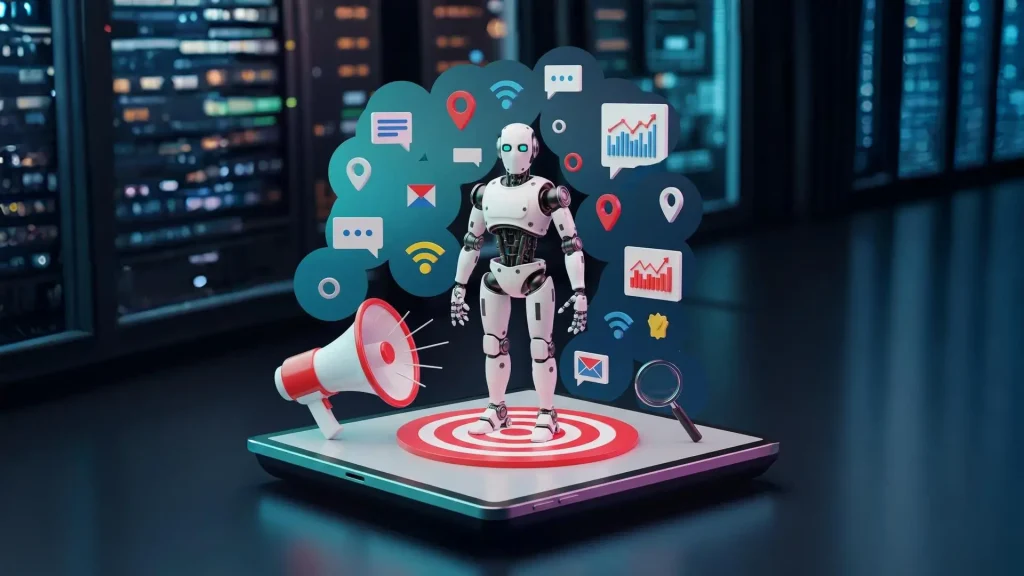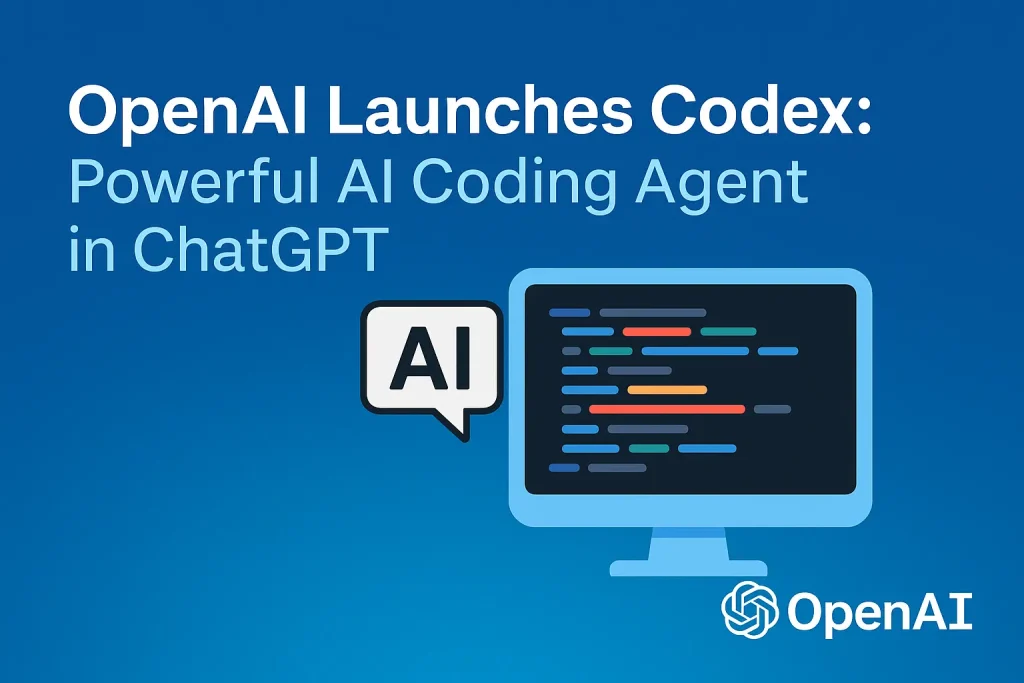The business landscape is constantly evolving, with new technologies emerging to reshape how companies operate and interact with their customers. Among these innovations, Artificial Intelligence (AI) stands out as a transformative force, particularly in the realms of sales and marketing. For those just beginning to explore the world of AI, the prospect can seem daunting, filled with technical jargon and complex algorithms. However, understanding the fundamental principles and practical applications of AI for sales and marketing is crucial for any business aiming to thrive in the modern era. This article will demystify AI, explore its profound impact on sales and marketing, and answer the critical question: “Can I use AI for marketing?”
What is Artificial Intelligence (AI)? A Beginner’s Guide
Before diving into its applications, let’s establish a foundational understanding of AI. At its core, Artificial Intelligence refers to the simulation of human intelligence processes by machines, especially computer systems. These processes include learning (the acquisition of information and rules for using the information), reasoning (using rules to reach approximate or definite conclusions), and self-correction.
Think of it this way: For centuries, humans have been the primary drivers of innovation, decision-making, and creativity. AI attempts to empower machines to perform tasks that typically require human intellect. This isn’t about robots taking over the world (at least not yet!), but rather about creating intelligent tools that can augment human capabilities, automate repetitive tasks, and uncover insights that would be impossible for humans to discern alone.
There are several key branches of AI that are particularly relevant to sales and marketing:
- Machine Learning (ML): This is a subset of AI that enables systems to learn from data, identify patterns, and make decisions with minimal human intervention. Imagine feeding a system thousands of customer interactions; ML algorithms can then learn what leads to successful sales or effective marketing campaigns.
- Natural Language Processing (NLP): NLP focuses on enabling computers to understand, interpret, and generate human language. This is vital for tasks like analyzing customer feedback, powering chatbots, and personalizing marketing messages.
- Computer Vision: While perhaps less directly applicable to sales and marketing than ML or NLP, computer vision allows machines to “see” and interpret visual information. In some marketing contexts, this could involve analyzing images in social media posts to gauge brand sentiment or understanding customer engagement with visual advertisements.
- Deep Learning: A more advanced form of machine learning, deep learning uses artificial neural networks with multiple layers to learn from vast amounts of data. This is what powers many cutting-edge AI applications, from complex recommendation engines to sophisticated predictive analytics.
The beauty of AI, especially for beginners, is that you don’t need to be a data scientist to leverage its power. Many user-friendly AI-powered tools are now available, abstracting away the complex algorithms and allowing businesses to focus on strategy and results.
The Indispensable Role of AI in Sales
Sales has traditionally been a highly human-centric field, relying on intuition, relationship building, and persuasive communication. While these elements remain crucial, AI for sales is revolutionizing the sales process by providing unprecedented insights, automating mundane tasks, and empowering sales professionals to be more effective and efficient.
Let’s break down how AI is transforming sales:
- Lead Generation and Qualification: One of the biggest challenges for sales teams is finding qualified leads. AI can analyze vast datasets, including past customer behavior, demographic information, and online activity, to identify potential customers who are most likely to convert. Predictive analytics, a key component of AI, can even score leads based on their likelihood of purchase, allowing sales reps to prioritize their efforts. Imagine an AI system sifting through millions of online profiles, identifying individuals who have shown interest in products similar to yours, and then ranking them by their potential value. This saves countless hours of manual prospecting.
- Sales Forecasting: Accurate sales forecasting is essential for resource allocation, inventory management, and strategic planning. AI algorithms can analyze historical sales data, market trends, economic indicators, and even weather patterns to generate highly accurate sales forecasts. This predictive power allows businesses to anticipate demand, optimize staffing, and make informed business decisions.
- Personalized Customer Interactions: In today’s competitive landscape, generic sales pitches fall flat. AI empowers sales teams to deliver highly personalized interactions. CRM (Customer Relationship Management) systems, often enhanced with AI, can provide sales reps with a 360-degree view of each customer, including their purchase history, preferences, and recent interactions. AI can even suggest the best next steps for a sales rep to take, whether it’s an email, a phone call, or a specific product recommendation.
- Automated Sales Support and Follow-Up: Repetitive tasks like sending follow-up emails, scheduling meetings, and answering frequently asked questions can consume a significant portion of a sales rep’s time. AI-powered chatbots and virtual assistants can handle these tasks, freeing up sales professionals to focus on higher-value activities like building relationships and closing deals. Imagine a chatbot instantly answering a customer’s query about product specifications, allowing a sales rep to engage with another potential client.
- Optimizing Sales Training and Performance: AI can analyze sales calls, emails, and presentations to identify areas where sales reps can improve. By analyzing sentiment, keywords, and tone, AI can provide objective feedback and personalized coaching recommendations. This allows sales managers to train their teams more effectively and tailor development programs to individual needs, leading to improved sales performance across the board.
- Dynamic Pricing: In certain industries, AI can be used to dynamically adjust pricing based on real-time demand, competitor pricing, and customer segmentation. This allows businesses to maximize revenue by optimizing prices for different customer segments and market conditions.
The integration of AI for sales is not about replacing human sales professionals but empowering them with intelligent tools that amplify their effectiveness, allowing them to focus on the human elements of sales – empathy, persuasion, and relationship building – while AI handles the data crunching and automation.
The Transformative Power of AI in Marketing
Now, let’s address the burning question: “Can I use AI for marketing?” The emphatic answer is yes, absolutely! In fact, AI for marketing is no longer a luxury but a necessity for businesses looking to connect with their audience effectively, personalize experiences, and optimize their marketing spend.
Here’s how AI is reshaping the marketing landscape:
- Hyper-Personalization at Scale: Traditional marketing often involved broad, one-size-fits-all campaigns. AI has revolutionized this by enabling hyper-personalization at an unprecedented scale. By analyzing vast amounts of customer data – Browse history, purchase patterns, demographics, social media activity – AI can create individualized marketing messages and product recommendations. Imagine receiving an email that perfectly matches your interests and needs, rather than a generic promotional blast. This level of personalization significantly increases engagement and conversion rates.
- Enhanced Customer Segmentation: AI can identify subtle patterns and correlations in customer data that would be impossible for humans to detect. This allows for more granular and accurate customer segmentation, enabling marketers to tailor campaigns to specific groups with highly refined messaging. Instead of broad categories like “young adults,” AI might identify segments like “urban millennials interested in sustainable fashion and craft beer.”
- Predictive Analytics for Marketing Campaigns: Just as in sales, AI-powered predictive analytics can forecast the success of marketing campaigns before they are even launched. By analyzing historical campaign data, audience demographics, and market trends, AI can predict which creative elements, channels, and messaging will resonate most effectively with target audiences. This allows marketers to optimize their strategies and allocate budgets more efficiently, minimizing wasted spend.
- Optimized Content Creation and Curation: Creating compelling content is a cornerstone of modern marketing. AI can assist with content creation by generating drafts of articles, social media posts, and even ad copy. More importantly, AI can analyze content performance and suggest improvements, or even curate existing content to deliver to specific audiences based on their preferences. Imagine an AI suggesting topics for your next blog post based on what your audience is actively searching for online.
- Intelligent Chatbots and Virtual Assistants: These AI-powered tools are transforming customer service and engagement. Chatbots can provide instant answers to customer queries, guide users through websites, and even qualify leads. They offer 24/7 support, improving customer satisfaction and reducing the workload on human customer service teams. This seamless interaction enhances the overall customer journey and builds brand loyalty.
- Programmatic Advertising and Bid Optimization: AI is at the heart of programmatic advertising, where ad space is bought and sold through automated systems. AI algorithms analyze data in real-time to determine the optimal bid for ad impressions, ensuring that ads are shown to the most relevant audience at the most opportune moment. This maximizes ad spend efficiency and improves campaign ROI.
- Sentiment Analysis and Brand Monitoring: Understanding public perception of your brand is crucial. AI-powered sentiment analysis tools can monitor social media conversations, news articles, and online reviews to gauge brand sentiment in real-time. This allows businesses to quickly identify and respond to negative feedback, protect their brand reputation, and capitalize on positive mentions.
- Marketing Automation and Workflow Optimization: AI seamlessly integrates with marketing automation platforms to streamline workflows. From scheduling emails and social media posts to nurturing leads through automated sequences, AI ensures that marketing efforts are consistent, timely, and efficient. This frees up marketers to focus on strategic planning and creative initiatives.
- Attribution Modeling: Understanding which marketing touchpoints contribute to a sale or conversion is a complex challenge. AI can analyze complex customer journeys, including multiple touchpoints across various channels, to accurately attribute conversions to specific marketing activities. This provides a clearer picture of ROI for different marketing investments.
The Synergy of AI in Sales and Marketing: A Unified Approach
While we’ve discussed AI in sales and marketing separately, their true power lies in their synergistic integration. When sales and marketing teams leverage AI collaboratively, they create a unified, customer-centric approach that drives unprecedented growth.
Imagine a scenario where:
- AI for marketing identifies a highly engaged lead through a personalized email campaign and social media interactions.
- The marketing AI then seamlessly passes this qualified lead, along with rich contextual data about their interests and interactions, to the sales team.
- AI for sales then equips the sales representative with personalized talking points, recommended products, and a comprehensive understanding of the lead’s journey, enabling them to close the deal more efficiently.
- After the sale, AI can continue to monitor customer satisfaction, identify upsell or cross-sell opportunities, and even predict churn, allowing both sales and marketing to re-engage with the customer effectively.
This seamless flow of information and intelligence between sales and marketing, powered by AI, creates a holistic customer experience that fosters loyalty and maximizes lifetime value.
Implementing AI in Your Business: A Practical Guide for Beginners
For those just starting their AI journey, the prospect of implementation can seem overwhelming. However, a phased and strategic approach can make it manageable and highly rewarding.
Here are some practical steps to consider:
- Start Small, Think Big: Don’t try to overhaul your entire sales and marketing operation with AI overnight. Identify a specific pain point or a clear business objective where AI can deliver immediate value. For example, begin by implementing an AI-powered chatbot for customer support or using AI for basic lead scoring.
- Define Your Goals: Before investing in any AI solution, clearly define what you want to achieve. Do you want to increase lead conversion, improve customer satisfaction, reduce marketing spend, or personalize customer experiences? Clear goals will guide your AI adoption strategy.
- Data is King (and Queen): AI thrives on data. Ensure you have clean, well-organized, and accessible data. The quality and quantity of your data will directly impact the effectiveness of your AI applications. Invest in data collection and management strategies.
- Explore User-Friendly Tools: Many AI-powered tools are designed for non-technical users. Look for platforms that offer intuitive interfaces, pre-built models, and seamless integrations with your existing CRM or marketing automation systems. Don’t feel pressured to build custom AI solutions from scratch unless you have specialized resources.
- Educate Your Team: Successful AI adoption requires buy-in from your team. Educate your sales and marketing professionals on what AI is, how it works, and how it will benefit them. Address any concerns about job displacement by emphasizing that AI is a tool to augment their capabilities, not replace them.
- Measure and Iterate: AI is not a set-it-and-forget-it solution. Continuously monitor the performance of your AI applications, collect feedback, and iterate on your strategies. The beauty of AI is its ability to learn and improve over time.
- Consider Ethical Implications: As you delve deeper into AI, it’s crucial to consider the ethical implications of data privacy, algorithmic bias, and transparency. Ensure your AI practices are responsible and compliant with relevant regulations.
The Future is AI-Powered
The integration of AI for sales and marketing is not a passing trend; it’s a fundamental shift in how businesses operate and compete. From understanding customer behavior with unprecedented depth to personalizing interactions at scale, AI empowers businesses to be more efficient, effective, and customer-centric.
For those asking, “Can I use AI for marketing?” the answer is not only yes, but you must. Businesses that embrace AI will gain a significant competitive advantage, while those that resist risk being left behind in an increasingly intelligent marketplace. The journey into AI may seem daunting at first, but with a clear understanding of its principles, a strategic approach to implementation, and a willingness to learn, any business can harness the transformative power of AI to achieve remarkable success in the digital age. The future of sales and marketing is undoubtedly AI-powered, and the time to begin your journey is now.







Leave a Comment